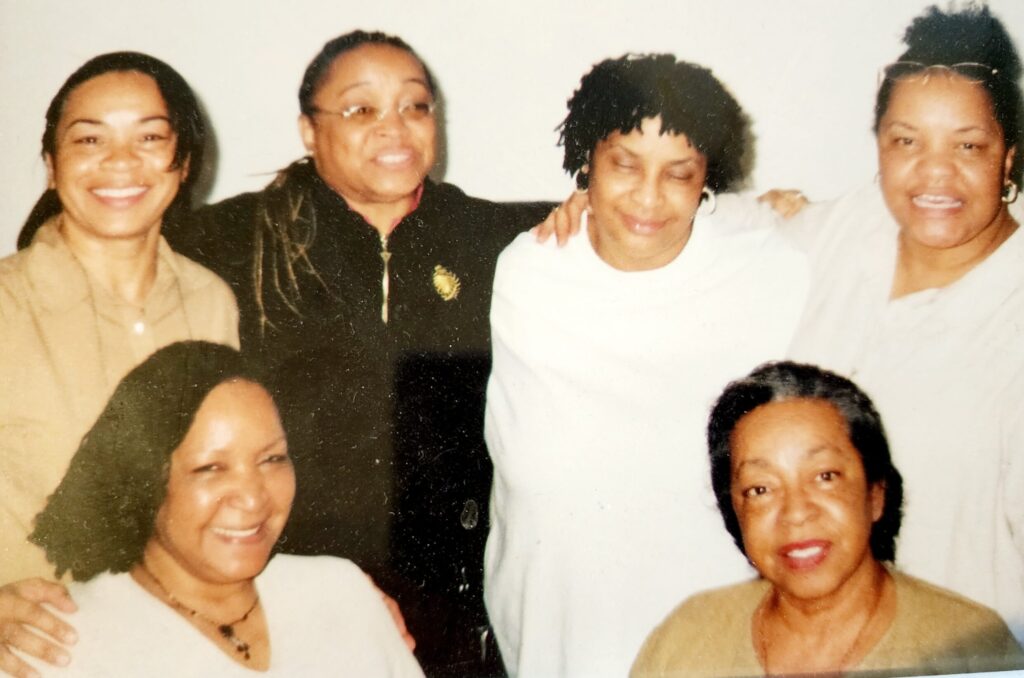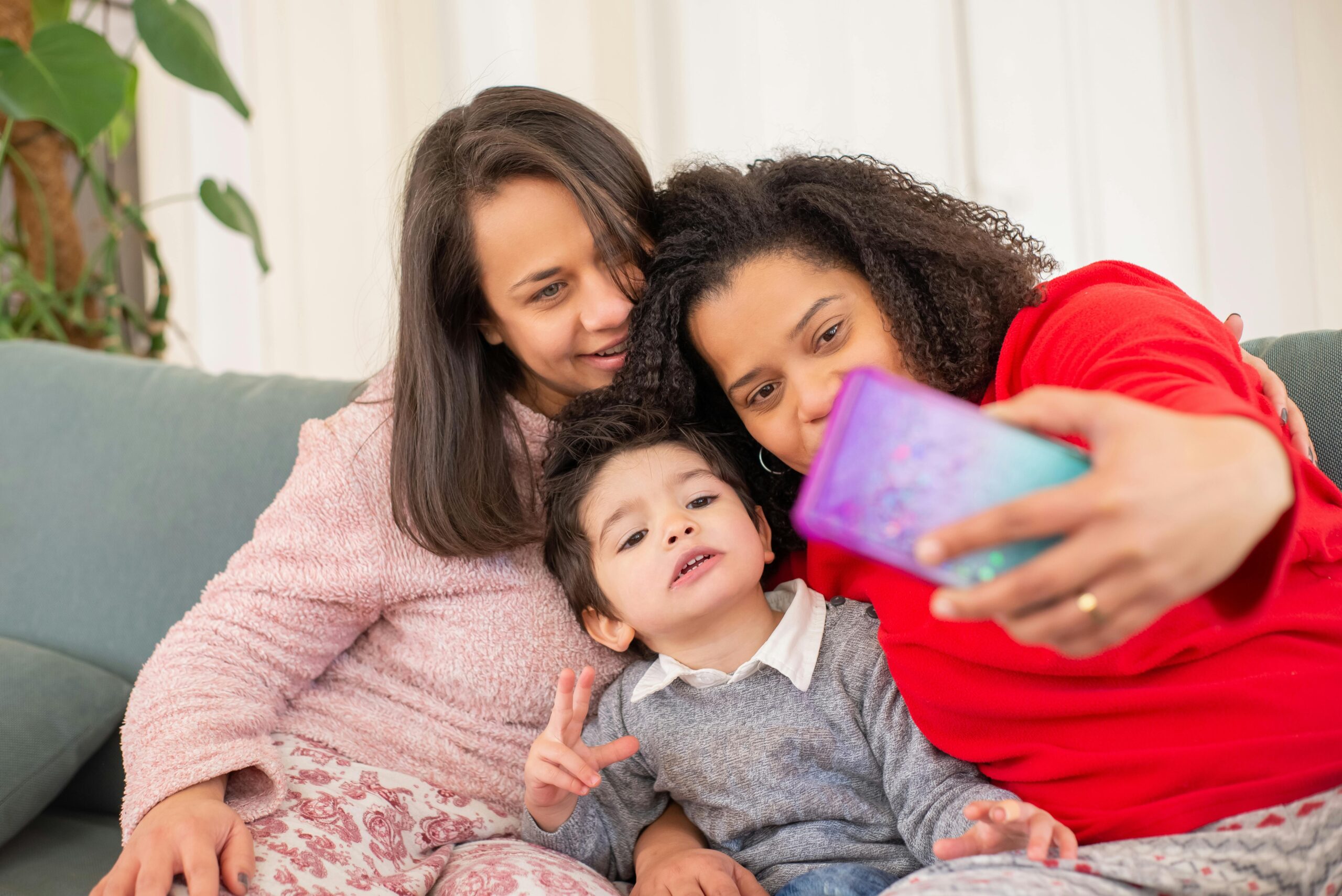Hello Faithful Readers! What is your family’s love language? I believe that every family has its own unique way of expressing love. For some, it’s grand gestures; (gifts, experiences, luxury jewels) for others, it’s quiet moments of togetherness, dinners out, or a calm conversation at bedtime (pillow talk). But what about those families whose love language has evolved over time? In our family, we have a hard and solid rule. ALWAYS! speaking kindly to each other. What I have found is that when we speak kindly to each other our love language shines. However, it hasn’t always been smooth sailing. Let’s dive into the humorous journey of how we discovered and embraced our family’s love language.

The Early Days
Snark and Sarcasm
Growing up as the youngest of eight children was like navigating a comedy minefield where our family’s love language was pure, unfiltered sarcasm. We all learned to find each other’s most vulnerable and emotional buttons. Believe me we pressed them with outright precision, turning every day into a live Comedy Central roast of sorts. None of us were immune, nor did we survive the dinner table. Not getting clowned meant either being incredibly lucky or wielding a razor-sharp comeback that could slice through even the most brutal family jokes.

The Evolution of My Family Love Language
Now, let’s rewind a few years. Although growing up with our family’s love language of sharp-tongued banter seemed playful on the surface, we needed to recognize that this initial communication style wasn’t the healthiest way to express joy or affection. We did not realize that our seemingly witty exchanges could be potentially harmful. I, unfortunately, used this defensive humor as a way to cope after my mother died and when life got hard.
I had to learn that there was a more loving and supportive way to interact with others. My teen years were difficult, and our personal growth and emotional intelligence developed slowly. This communication pattern even affected how I raised my children at times.
Picture this: there were moments when my frustration and exhaustion as a single mother got the best of me. I remember one instance in particular where I had been working tirelessly, juggling multiple responsibilities, and feeling the constant pressure of not having enough money to make ends meet. It seemed like I was always running on empty, and on that day, my patience was thinner than a dollar store paper plate.
I was angry and anxious and snapped at my children over something small—something that, under normal circumstances, wouldn’t have bothered me. The harsh words came out before I could stop them. I saw the hurt in their eyes, and immediately, the weight of my words hit me like a ton of bricks. I was devastated, knowing that my anger had affected them in a way I never intended.
In that moment, I realized how much they depended on me for guidance and love, and I felt like I had failed them with hate language… not love language. I was overwhelmed, not just by the challenges of being a single parent, but by the guilt of letting my stress spill over onto my kids. Although I knew I was doing everything I could to provide for them, the emotional toll of always being “on” took its toll on all of us.
That experience taught me the importance of giving myself and them grace, especially when the pressures of life feel unbearable. It was a painful lesson, but it reminded me to slow down, forgive myself, and show up with love—even on the hardest days.
So now, “Thank you, God,” I am able to appreciate the power of speaking kindly. Have I perfected it? Absolutely not, but I work at making it a habit.
Before I married my husband, we had serious conversations about speaking kindly to one another. We decided that, even when we didn’t feel like it, we would commit to speaking kindly no matter what. Do you know how difficult it is to call someone “sweetie” when you’re fuming? It’s a challenge, y’all.
The Turning Point: A New Approach
I picked up these habits and never realized what they were doing to me on the inside. Over time, I began to witness some family members pulling away. I didn’t think it would last, so I paid it no mind—until they started staying away longer and longer. Soon, they stopped coming to gatherings altogether, choosing their sanity over family, and I don’t blame them. It’s very sad because it was completely avoidable. The realization hit me: our words, though meant in jest, had the power to hurt. That’s when I decided to turn a new leaf and experiment with this novel concept (to me, at least)—speaking kindly.
The Transition: Awkward Beginnings
The initial phase of speaking kindly was nothing short of awkward. Compliments felt forced, and kind words seemed out of place. It was like trying to speak a foreign language without a dictionary. I fumbled, stumbled, and occasionally slipped back into old habits. But slowly and surely, kindness began to stick. It helped that I was a new Christian and was surrounding myself with people who were already aware of the power of words.

Unexpected Discoveries: Catching Kindness
The real surprise came when I started catching my friends and family using this new love language with me. My husband and I rarely argue or have a spat. It sneaks in once in a while, but not often.
The New Normal: Embracing Kindness
As time passes, speaking kindly has become the norm rather than the exception. Our conversations are safe havens. Encouragement replaces sarcasm, and compliments flow more freely. Family gatherings have become events to genuinely look forward to, rather than verbal sparring matches to endure.
So – words hold incredible power. They can build bridges or burn them, heal wounds or create them. By choosing to speak kindly, we choose to strengthen bonds and create a more peaceful and supportive environment. We have found our family’s love language in kindness.
Encouraging Others: Find Your Family’s Love Language
If I can transform from sarcasm enthusiast to champion of kindness, anyone can. Discovering your family’s love language might take time and effort, but the rewards are well worth it. Whether it’s words of affirmation, acts of service, or just spending quality time with your people, finding and embracing your family’s love language can bring you closer, keep you closer and create a more harmonious household.
Conclusion: Speak Kindness, Spread Love
In conclusion, a family’s journey from sarcasm to kindness will be filled with bumps, laughs, and unexpected moments of connection. Speaking kindly to each other will become your love language, a choice that can enrich your relationships and will make your home a happier place. So, next time you find yourself in a spat, remember this blog, and try throwing in a kind word or two. You might just catch yourself speaking your family’s love language, even in the midst of chaos. And remember, a little kindness goes a long way in spreading love and creating lasting bonds.
Do you have a story of lessons learned in kindness or snarkiness (not a word) Don’t hesitate, send it over in comments. We may contact you to publish a post! Can’t wait to hear from you!
In His Grip – Kathryn


